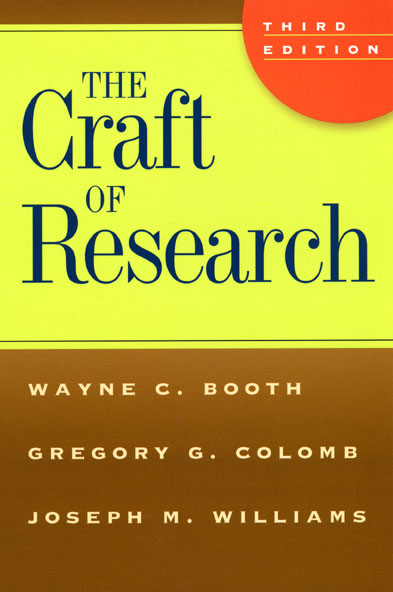Academic Writing: A Comprehensive Guide for Theses and Dissertations
Introduction
Academic writing is a specialized form of writing that requires clarity, precision, and adherence to specific conventions. This white paper provides a comprehensive guide for writers of theses and dissertations, covering essential aspects such as research methodology, structure, style, citation, and referencing.
The Research Process
Before embarking on the writing process, rigorous research is essential. Here are the key steps involved:
- Defining the Research Question:
- Clearly articulate the research problem or question.
- Ensure it is specific, focused, and researchable.
- Literature Review:
- Conduct a thorough review of existing literature.
- Critically analyze the research and identify gaps in knowledge.
- Organize the literature review thematically or chronologically.
- Research Methodology:
- Select an appropriate research methodology (qualitative, quantitative, or mixed methods).
- Develop a research design, including data collection methods (surveys, interviews, observations, experiments, etc.).
- Ensure ethical considerations are addressed.
- Data Collection and Analysis:
- Gather data systematically and rigorously.
- Analyze data using appropriate statistical or qualitative analysis techniques.
- Interpret the results and draw meaningful conclusions.
Structure and Organization
A typical academic thesis or dissertation follows a standard structure:
- Introduction:
- Clearly state the research question or thesis statement.
- Provide background information and context.
- Outline the paper's structure and organization.
- Literature Review:
- Summarize and critically analyze existing research on the topic.
- Identify gaps in the literature and justify the need for your research.
- Methodology:
- Describe the research methodology used, including data collection and analysis techniques.
- Justify the choice of methodology and discuss its limitations.
- Results and Discussion:
- Present the findings of your research.
- Analyze the results and discuss their implications.
- Conclusion:
- Summarize the main findings and conclusions.
- Discuss the limitations of the study.
- Suggest future research directions.
- References:
- List all cited sources in a consistent format (e.g., APA, MLA, Chicago).
Writing Style and Tone
- Formal Tone: Use a formal and objective tone throughout the paper.
- Clear and Concise Language: Express ideas clearly and concisely, avoiding jargon and unnecessary complexity.
- Third-Person Perspective: Use the third-person perspective to maintain objectivity.
- Active Voice: Use active voice to make your writing more direct and engaging.
- Paragraph Structure: Each paragraph should have a clear topic sentence and supporting details.
Citation and Referencing
- Citation Styles: Adhere to the appropriate citation style (e.g., APA, MLA, Chicago) throughout the paper.
- In-Text Citations: Cite sources within the text to support your arguments.
- Reference List: Create a comprehensive list of all cited sources at the end of the paper.
Proofreading and Editing
- Clarity and Conciseness: Ensure that your writing is clear, concise, and easy to understand.
- Grammar and Punctuation: Check for errors in grammar, punctuation, and spelling.
- Formatting and Style: Adhere to the specific formatting guidelines of your institution or journal.
- Plagiarism Check: Use plagiarism detection tools to ensure originality.
Additional Tips
- Start Early: Begin your research and writing well in advance.
- Break Down the Task: Divide the writing process into smaller, manageable tasks.
- Seek Feedback: Get feedback from peers, mentors, or writing centers.
- Take Breaks: Avoid burnout by taking regular breaks.
- Proofread Carefully: Pay attention to details and proofread multiple times.
By following these guidelines and seeking guidance from experienced writers and editors, you can produce high-quality academic writing that effectively communicates your research findings.
Recommended References:
- The Chicago Manual of Style
- The MLA Handbook
- The APA Publication Manual
- Strunk and White's Elements of Style
- The Craft of Research by Wayne C. Booth, Gregory G. Colomb, and Joseph M. Williams
- Writing for Success by David Rosenwasser and Jill Stephen
Remember, academic writing is a skill that takes time and practice to master. By consistently applying these principles, you can produce clear, concise, and impactful academic work.
A Comprehensive List of References for Academic Writing
Key Textbooks and Guides:
- A Manual for Writers of Research Papers, Theses, and Dissertations by Kate L. Turabian
- A classic guide for academic writing, particularly in the humanities and social sciences.
- The Chicago Manual of Style
- A comprehensive style guide for writers, editors, and publishers.
- The MLA Handbook
- The official style guide of the Modern Language Association, widely used in the humanities.
- The APA Publication Manual
- The official style guide of the American Psychological Association, commonly used in social sciences.
- Strunk and White's Elements of Style
- A timeless guide to clear and concise writing.
Online Resources and Style Guides:
- Purdue Online Writing Lab (OWL): Offers a wealth of resources on writing, research, and grammar.
- Grammarly: A popular writing assistant that helps identify and correct errors in grammar, punctuation, and style.
- Citation Machine: A tool for generating accurate citations in various styles.
- Zotero: A free reference management software.
- Google Scholar: A powerful search engine for academic research.
Additional Tips:
- Consult with Your Instructor or Advisor: Seek guidance from your instructor or advisor for specific formatting and citation requirements.
- Utilize University Writing Centers: Many universities offer writing centers that provide free tutoring and feedback.
- Attend Workshops and Conferences: Participate in workshops and conferences to learn from experts and network with other researchers.
- Practice Regularly: The more you write, the better you will become.
By combining these resources and following the guidelines provided in this white paper, you can produce high-quality academic writing that effectively communicates your research findings. Contact ias-research.com for details.



